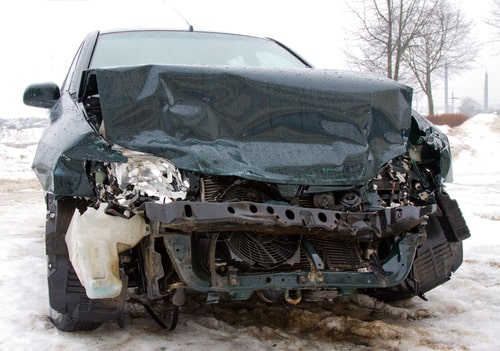Driving a vehicle safely requires not only skill but also concentration. Without one or the other, there is a high risk of crashing. It takes practice and many hours of driving to build up that skill. When it comes to concentration, however, this is something the driver has total control over, including lack of concentration from fatigued driving.
Drivers need to concentrate on the road in order to anticipate, recognize, and respond to dangers and hazards that present themselves on the road. Without that concentration and focus, drivers greatly increase the odds of being involved in a serious car accident.
The need for concentration is why it is so important for drivers to avoid any activities while driving that would distract them. However, many people do not realize that fatigue is also a key factor in how well a driver is able to concentrate. Failure to get enough sleep affects our abilities to stay focused and a driver who is drowsy behind the wheel can crossover into traffic or drift into other lanes, fail to see pedestrians, traffic lights, or traffic signs. The consequences can be tragic, with catastrophic injuries or even death for victims of crashes caused by drowsy drivers.
Unfortunately, data shows that far too many drivers are driving around fatigued. One in 25 adult drivers admits to falling asleep while driving within the previous month and federal statistics reveal that more than 6,000 people are killed in crashes caused by fatigued driving every year.
There are many reasons why drivers can suffer from lack of sleep besides just not sleeping enough hours, including the number of hours the driver is on the road, and improper use of sleep aids or other medications. Shift workers, young drivers, and people who suffer from undiagnosed sleep disorders, such as sleep apnea, are all susceptible to fatigue driving.
How Does Lack of Sleep Affect Driving?
When a person who is extremely tired is driving, this fatigue can be similar to a driver who is driving with a blood-alcohol level of .08 percent – the same level that is the legal threshold for drunk driving. Just like alcohol, fatigue can cause a driver to have slower reaction times and interfere with their ability to process the information needed to drive safely. Even more alarming is that when a driver is especially exhausted, they may experience four to five seconds of nodding off while the vehicle is in motion. These sleep microbursts often result in tragic crashes.
Proving Liability
Every driver has a duty of care to everyone else they share roads with. When a person is suffering from fatigue but decides to drive anyway, it can be the same breach of that duty of care as driving after having alcohol. A Virginia car accident attorney will examine all the evidence in a crash to determine whether or not the at-fault driver was driving while fatigued. Some of the factors can include:
- Crashes that occur in the early morning or late at night
- The driver was alone in the vehicle
- The crash happened on a high-speed road
- There was no attempt by the driver to avoid the crash
- The vehicle left the road
Contact a North Carolina Injury Attorney
If you have been injured in an accident caused by a driver who was fatigued, contact a North Carolina car accident attorney to discuss what legal recourse you may have. Under state law, you may be able to pursue damages for medical expenses, loss of income, pain and suffering, emotional anguish, and any other losses the injuries have caused you. The legal team at Shapiro, Washburn & Sharp have more than 30 years of legal experience successfully fighting to get accident victims the financial compensation they deserve.
